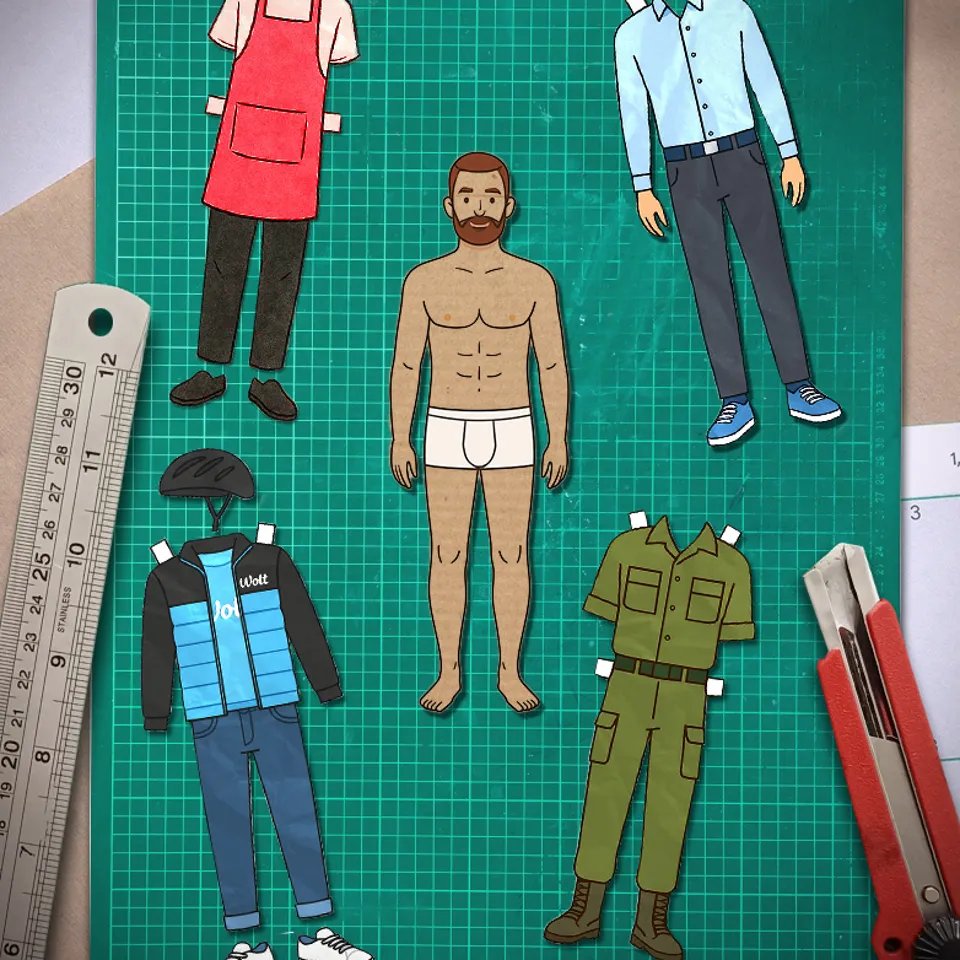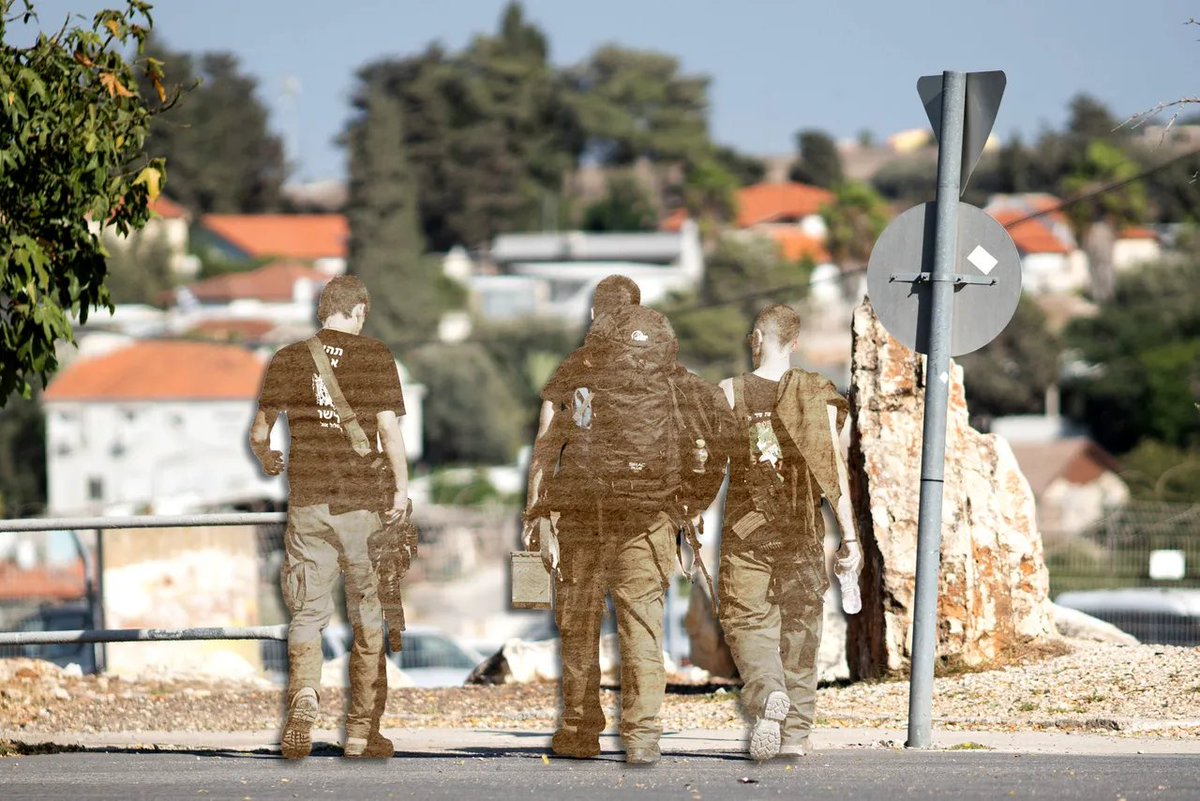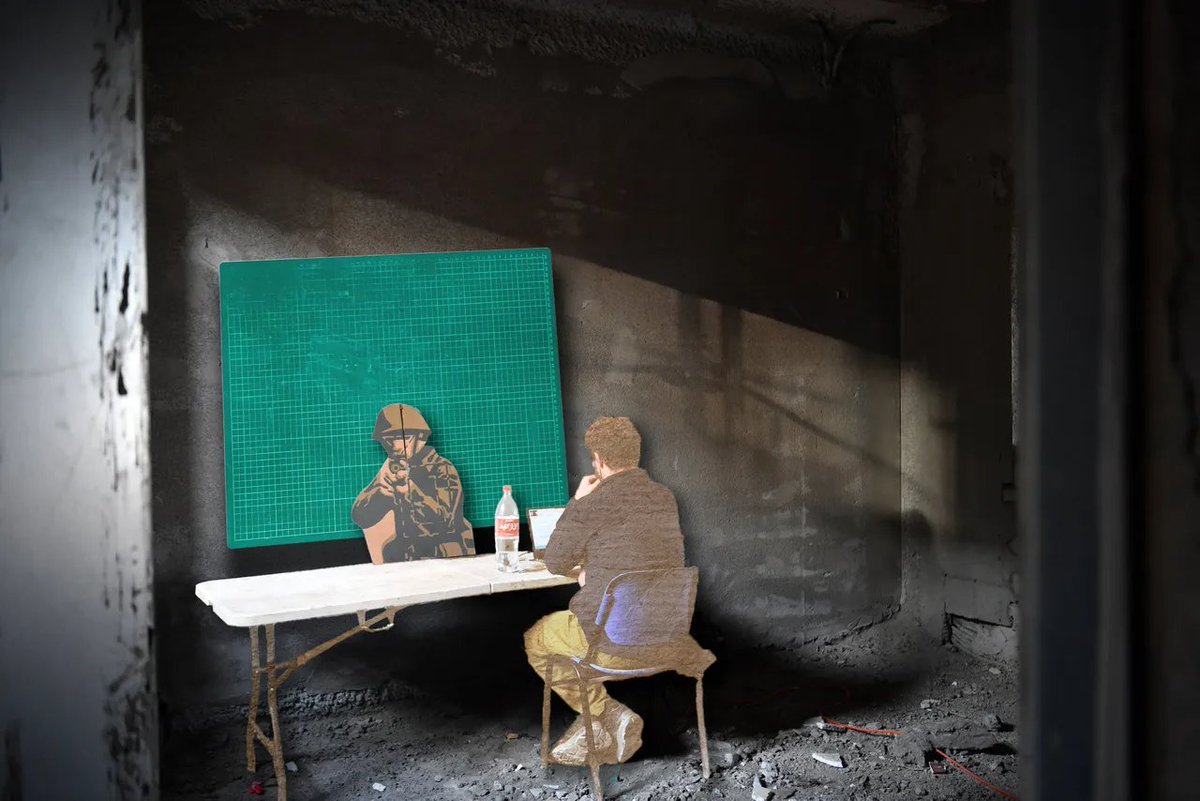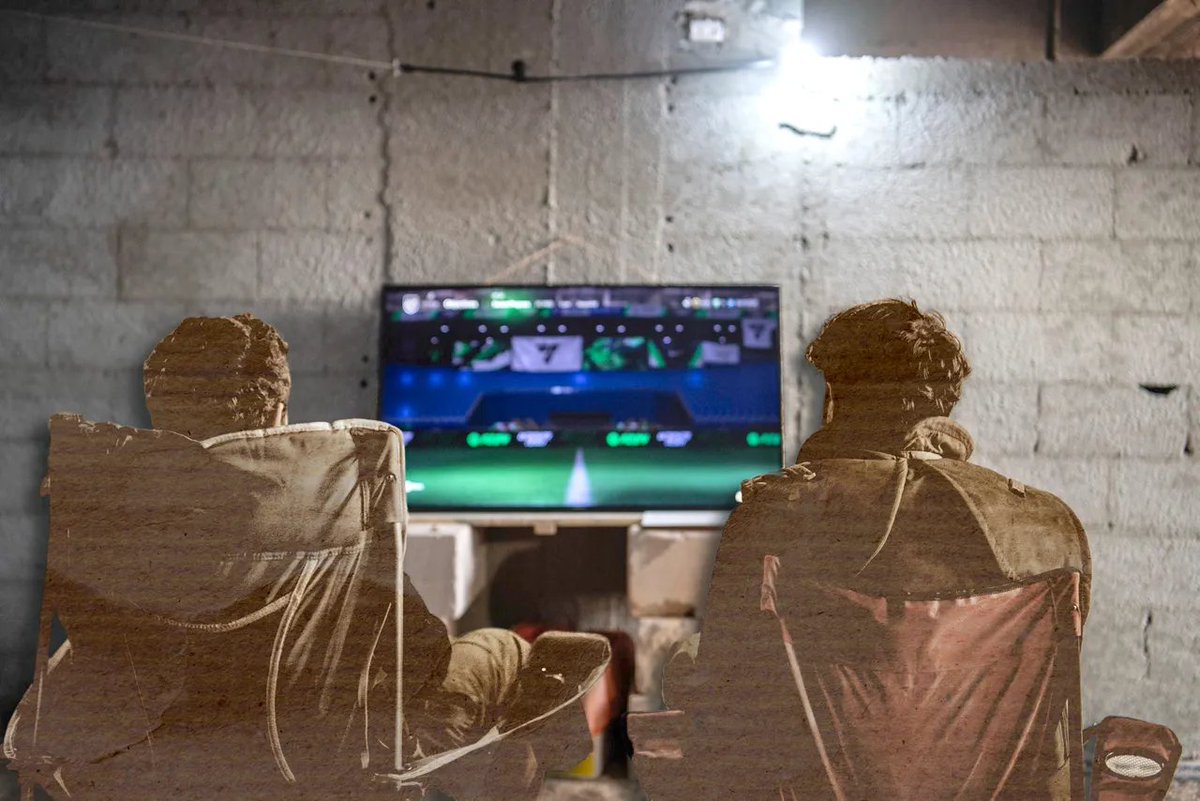“It’s not a Professional Army, but it’s also not really Reserves - it’s a Gig-Army”:
A few weeks ago, a friend came over and told me about his long volunteer reserve duty. 🧵
A few weeks ago, a friend came over and told me about his long volunteer reserve duty. 🧵

2. “What I realized during this reserve duty”, he said, “is that the IDF has basically ceased to exist as a Citizen Army. De facto, it’s a Professional Army.”
3. He wasn’t the only one. I started hearing more and more similar claims from friends serving in various units. Some spoke of reservists jumping from battalion to battalion to secure more reserve days due to financial hardship.
4. Others described doing reserve duty ‘between jobs’, and some said they were doing reserve duty to avoid being fired.
5. Again and again, they repeated the claim that the IDF has effectively become a professional army. Soon after, this discourse also made its way into the media, where the question was posed explicitly: have the reserves turned the IDF into a professional army? 

6. There was a moment when it clicked for me - all these people were describing a real phenomenon, but they simply weren’t calling it by its proper name.
7. It has another name, one we're used to hearing in economic and social discussions about the labor market, but until now we hadn’t realized it applies to our reserve service too.
8. That name is “the gig economy,” and it’s actually what has produced the phenomenon we’re seeing. The correct name for it is not “professional army” - it’s “gig reserves.”
9. The “gig economy” is the term economists and sociologists gave, a few years ago, to a phenomenon in which workers - usually young - are employed as temporary “service providers” for an organization, while both sides maintain minimal commitment to each other.
10. The employer doesn’t offer job security or full benefits, and the worker chooses specific tasks that are financially worthwhile and fit their schedule. The most classic example of this in Israel is Wolt’s (DoorDash subsidiary) couriers.
11. The gig economy is mostly associated worldwide with late Millennials and Gen Z. These are workers who entered a labor market never expecting to have a deep, long-term commitment to their workplace. What’s new is that now this phenomenon has reached the IDF.
12. What does it mean that this phenomenon has reached the IDF? In short - since the war began, the IDF has needed a lot of manpower. This is especially true for combat roles, but not only. 

13. It calls people in for long reserve rotations, but since there still aren’t enough people - or in order to compensate for those who don’t show up - it offers other reservists the chance to volunteer.
14. There are even units in the army today where this is the primary model for bringing in reserves: “We don’t force anyone to come - only reservists who want to will show up.”
15. It’s important to offer a caveat here: in today’s Israel, there are thousands of reservists who serve out of a sense of obligation, at the call of the state, despite paying a heavy personal, familial, and professional price.
16. Also, the IDF truly does need more manpower for its assigned missions, and it uses what it can. And truly - if a 22-YO can fill in for a 35-YO burned-out reservist with three kids at home, that’s a great thing. 

17. We should also note that many of these volunteers do so not just for financial reasons, but because they genuinely want to contribute.
18. In fact, in some army units this is the only way to serve in the reserves - the whole system is built around “we invite people to come, and whoever can, comes when it works for them".
19. But this is precisely the point: the problem here, in my view and in the view of most interviewees for this article, isn’t that people are abusing the system.
20. Yes, that happens too. But the real issue is that the reserve duty model in Israel wasn’t built for the kind of reality we’re facing now.
21. The model was built around a security doctrine of short wars, and a reality where people worked steadily for a single employer who could absorb the cost of losing a worker to reserve duty for a short time. Neither of those assumptions holds true anymore. 

22. And when that’s the case, three major effects follow:
23. First - Massive government spending: According to the IDF’s financial advisor, the average cost of a reservist is nearing 30,000 shekels per month. During “Operation Gideon’s Chariots,” just one day of reserve duty in the Gaza theater alone cost the state 80 million shekels.
24. Second - Disruption of the labor market: Almost every employer in Israel will tell you today that they’re short on workers.
25. Businesses that rely on college-age labor can’t find anyone to hire. And if an employer wants to fire someone? The worker says, “Go ahead - worst case, I’ll just do reserve duty”.
26. Third - Long-term damage to the army: This is perhaps the least-discussed effect. The current reality is eroding the ethos of reserve duty, turning it into something people do only when it suits them, not as a national obligation.
27. Additionally, there’s ample evidence that ongoing reserve service is degrading the quality of regular soldiers. The army is getting used to relying on reservists instead of investing in training its regular soldiers.
28. There’s no simple solution to the current situation. Optimists may see this as a sign of Israeli organizational flexibility and young people’s willingness to contribute alongside financial incentives.
29. But what *is* needed is recognition that something fundamental has changed in the model we once knew, that a new model is required, and that to build it properly - this demands a public conversation.
30. And what’s the first step in enabling that public conversation? We have to start by naming the phenomenon correctly. It’s not a “professional army”. It’s a “Gig Army”.
You can read the full article (English translation by Avshalom Halutz) here:
haaretz.com/israel-news/20…
haaretz.com/israel-news/20…
Illustrations credit: Shumisat Rasulaev
Hebrew version of this thread:
https://x.com/udschachter/status/1946138195923550253
• • •
Missing some Tweet in this thread? You can try to
force a refresh










